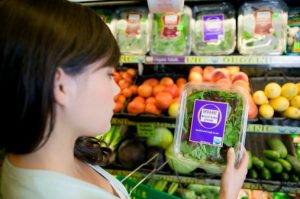 Irritable bowel syndrome (IBS) patients can better manage their symptoms with an IBS-specific diet. IBS symptoms are often triggered by food, so sticking to an IBS diet can reduce severity and flare-ups. Unlike the case of a gluten-free diet and celiac disease, an IBS diet is not a one-size-fits-all. Although there are some general guidelines regarding what to eat and what to avoid, determining which foods you can and cannot tolerate will require some trial and error.
Irritable bowel syndrome (IBS) patients can better manage their symptoms with an IBS-specific diet. IBS symptoms are often triggered by food, so sticking to an IBS diet can reduce severity and flare-ups. Unlike the case of a gluten-free diet and celiac disease, an IBS diet is not a one-size-fits-all. Although there are some general guidelines regarding what to eat and what to avoid, determining which foods you can and cannot tolerate will require some trial and error.
As someone who is living with IBS (and Crohn’s disease), I will tell you that finding the perfect diet can be challenging and frustrating. But once you finally narrow down on what you can and cannot eat, meals are no longer a stressful event, and you can go back to enjoying your daily life.
Advertisement
The most commonly recommended diet for IBS is the FODMAP diet. FODMAP stands for fermentable oligo-di-monosaccharides and polyols, which are basically sugars found in carbohydrates. On the other hand, not all carbohydrates are considered FODMAPs.
The FODMAP types of carbs are fructose (fruits, honey, corn syrup), lactose (dairy), fructans (wheat, onions, garlic), galactans (legumes like beans and lentils), and polyols (fruits with pits or seeds). These types of carbs pull water into your digestive tract. If eaten in excess, FODMAPs stay in your gut and ferment, making you feel bloated. By sticking to a low FODMAP diet – reducing foods that contain these types of carbs – a person with IBS may have be able to lower their IBS symptoms and other digestive issues.
Here we will help you narrow down on some common trigger foods you may wish to avoid if you are living with IBS. Make sure to look at the list of recommended foods that may help your condition.
Foods to eat with irritable bowel syndrome
A healthy balanced diet is still important for IBS patients, so when it comes to making good food choices there are a few things to keep in mind.
Fiber: Choose soluble fiber commonly found in fruits and vegetables. Unlike insoluble fiber, it won’t lead to bloating.
Grains: Many IBS patients also have a problem digesting gluten even though that is a defining characteristic of celiac disease. Try choosing grains that don’t contain gluten, such as quinoa, corn, rice, buckwheat, millet, oats, and amaranth.
Other foods you can enjoy on an IBS diet include:
- Almond, coconut, rice, and soy milk
- Bananas
- Bell peppers
- Blueberries
- Carrots
- Cucumbers
- Grapes
- Oats
- Potatoes
- Quinoa
- Rice
- Spinach,kale, and other leafy greens
- Tangerines
- Tomatoes
Foods and drinks to avoid with IBS
 As a rule of thumb, you should avoid foods that are high in fat, milk products, alcoholic or caffeinated beverages, foods that contain high amounts of artificial sweeteners, as well as beans, cabbage, and other foods that may cause gas.
As a rule of thumb, you should avoid foods that are high in fat, milk products, alcoholic or caffeinated beverages, foods that contain high amounts of artificial sweeteners, as well as beans, cabbage, and other foods that may cause gas.
You will also want to avoid foods that are high in FODMAPs. Examples of these types of foods include:
- Anything made with wheat, barley, or rye
- Apples
- Artichokes
- Artificial sweeteners (like in chewing gum)
- Beans
- Cashews
- Cauliflower
- Dried fruits
- Garlic and onions
- High-fructose corn syrup
- Honey
- Ice cream
- Mushrooms
- Pistachios
- Watermelon
- Canned fruit in natural fruit juice or large quantities of fruit juice or dried fruit
As mentioned, these are just examples of common foods causing trouble to people with IBS. You may find you can tolerate these in small amounts and on occasion.
Tips for healthy eating with irritable bowel syndrome
Along with your IBS diet, there are other factors and tips you should keep in mind to help you reduce IBS symptoms and enjoy your life. These tips include:
- Eat on a regular schedule
- Eat a well-balanced diet
- Eat smaller portions
- Eat slowly
- Drink plenty of water
- Avoid carbonated beverages
- Avoid caffeine and alcohol
- Record your own personal triggers to guide your food choices
- Avoid fried foods
- Speak with a dietician if you’re struggling with creating an IBS diet
Cooking tips and recipes for irritable bowel syndrome
 Now that you’re more aware of foods you can and cannot eat as part of your IBS diet, you can now come up with recipes to enjoy. IBS patients usually find it easier to create their own meals as many restaurants do not list all their ingredients on the menu, so you never know if one of your trigger foods is hiding in your meal. By cooking at home you have control of what goes into your dishes, thus reducing the risk of a flare-up.
Now that you’re more aware of foods you can and cannot eat as part of your IBS diet, you can now come up with recipes to enjoy. IBS patients usually find it easier to create their own meals as many restaurants do not list all their ingredients on the menu, so you never know if one of your trigger foods is hiding in your meal. By cooking at home you have control of what goes into your dishes, thus reducing the risk of a flare-up.
Here are some recipes to kickstart your IBS diet.
Chia super salad
Ingredients:
- 1 medium sweet potato, peeled, cubed, and steamed
- 1 can kidney beans, drained and rinsed
- 2 cups quinoa, cooked
- 2 cups finely chopped kale leaves
- 2 tablespoons chia seeds
- 2 tablespoons sesame seeds
- ¼ cup hulled pumpkin seeds
- ¼ cup extra virgin olive oil
- ¼ teaspoon cayenne pepper
- 2 tablespoons balsamic vinegar
- salt and pepper to taste
Use a whisk to emulsify the vinegar, olive oil, cayenne, salt, and pepper in a small bowl.
In a large bowl, mix together the cooked sweet potato, beans, quinoa, onion, kale, chia, sesame seeds, and pumpkin seeds. Toss with the dressing.
Tuna spaghetti
Ingredients:
- 1 tablespoon olive oil
- 1 can diced tomatoes
- 1 tablespoon capers, drained
- 1 can tuna, packed in spring water and drained
- 8 ounces rice or corn spaghetti
Instructions:
Heat a large saucepan over high heat. Add the olive oil and the diced tomatoes and lower the heat to medium. Cook until the sauce thickens slightly – about 5 to 7 minutes. Stir in the tuna and capers, and keep over the heat until all the components are warm. Toss with the spaghetti to serve 2.
Tuna salad
Advertisement
Ingredients:
- 3 oz chunk light tuna, packed in water, drained
- ¼ cup chopped red bell pepper
- 2 tablespoons chopped fresh parsley
- 1 teaspoon capers
- 1 teaspoon chopped fresh rosemary
- juice of one lemon, 1 tablespoon reserved
- 3 teaspoons olive oil, divided
- salt and pepper to taste
- 2 cups spring mix greens
Instructions:
Toss together tuna, bell pepper, parsley, capers, rosemary, about half of the lemon juice, and 1 teaspoon olive oil in a bowl – season with the pepper. Whip together 1 tablespoon lemon juice, 2 teaspoons olive oil and salt – mix with the salad greens. Place the dressed greens on a plate and top with the tuna mixture.
Buon appetito!
